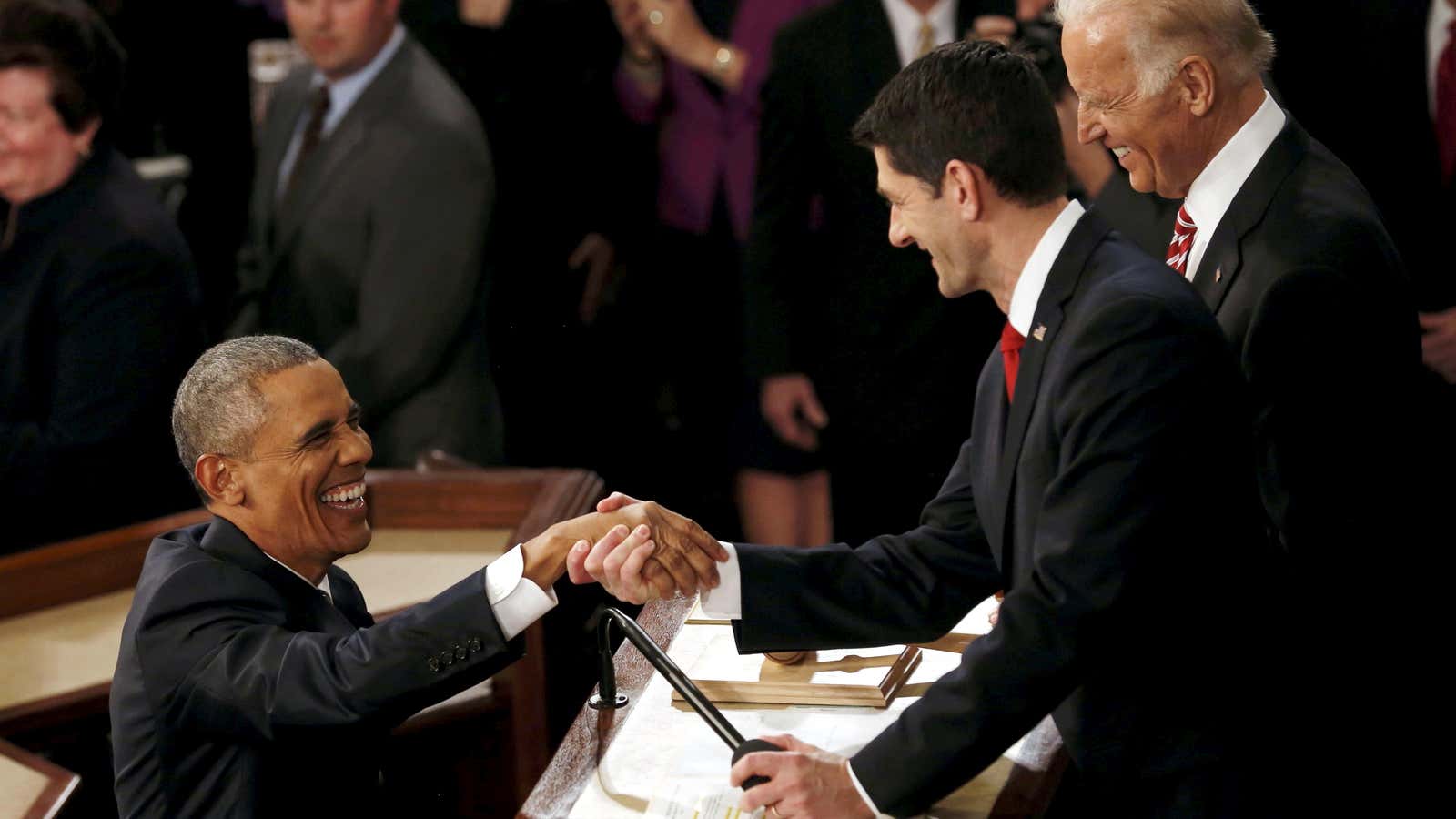“It’s one of the few regrets of my presidency — that the rancor and suspicion between the parties has gotten worse instead of better.”
That admission in President Barack Obama’s final State of the Union speech captures the fundamental contradiction of his administration: He has a laundry list of presidential accomplishments, but he has been unable to realize the lofty aspirations of national unity that vaulted him to political stardom.
His last major address to the American people was a plea for the country to carve out a space for political discourse that doesn’t demand all-or-nothing fealty to ideological, racial, or religious tenets.
Obama’s final State of the Union reflected the bruising road that Obama has traveled since 2004, when as an Illinois state senator he delivered his famous speech at the Democratic National Convention:
[P]undits like to slice and dice our country into red states and blue States: red states for Republicans, blue States for Democrats. But I’ve got news for them, too. We worship an awesome God in the blue states, and we don’t like federal agents poking around our libraries in the red states. We coach Little League in the Blue States, and, yes, we’ve got some gay friends in the Red States.
In 2009, in his first presidential address to Congress, Obama told lawmakers that “what the American people hope—what they deserve—is for all of us, Democrats and Republicans, to work through our differences, to overcome the numbing weight of our politics.”
Instead, Obama and the rest of the country sank beneath it. The Republican party fractured between its centrist, business-oriented wing and hardline conservatives, leaving little room for compromise between the parties and setting up years of gridlock and legislative brinksmanship.
Obama was able to pass an economic stimulus and overhauls of financial regulations and the US health care system. But appeals to the American character could not mask fundamental divisions between the parties over immigration, taxes and the environment, leaving many major problems unsolved.
In a speech that often felt like a rebuttal to Donald Trump’s entire political campaign of fear and depression, the president offered bombastic defenses of the US economy and its military might. Yet he warned that the country’s bonds are fraying.
“Democracy grinds to a halt without a willingness to compromise; or when even basic facts are contested, and we listen only to those who agree with us,” he said. ”Our public life withers when only the most extreme voices get attention. Most of all, democracy breaks down when the average person feels their voice doesn’t matter; that the system is rigged in favor of the rich or the powerful or some narrow interest.”
Obama’s agenda to fix US politics includes an end to heavily gerrymandered congressional districts, new limits on money in politics, and simpler, modern voting. He’ll have a hard time selling it across the aisle.
But despite the last eight years, he urged individual citizens to reject the politics of fear, whatever their political party, and seek a common American identity.
“As frustration grows, there will be voices urging us to fall back into tribes, to scapegoat fellow citizens who don’t look like us, or pray like us, or vote like we do, or share the same background,” Obama warned. “We can’t afford to go down that path. It won’t deliver the economy we want, or the security we want, but most of all, it contradicts everything that makes us the envy of the world.”
